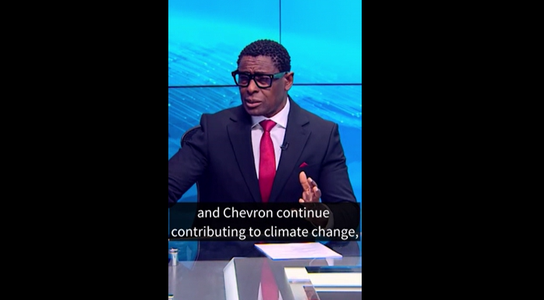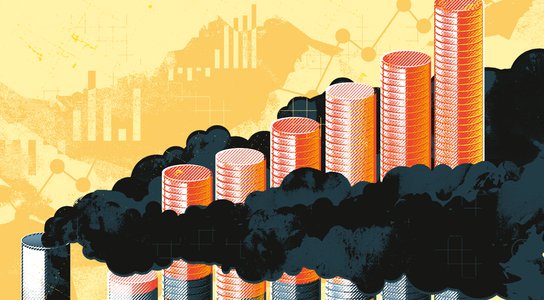Gazprom subsidiaries remain in the lobby group Gas Infrastructure Europe.
1 April 2022, London - The EU’s two largest gas lobby groups which represent Europe’s biggest gas companies including Shell, Total and Eni have rejected a call to back EU leaders’ commitments to exiting Russian energy by 2027. Meanwhile, Global Witness has also uncovered links between the lobby groups’ members and the Putin regime, and their members’ ongoing investments in Russia.
Both groups, Eurogas and Gas Infrastructure Europe, when asked directly by Global Witness, did not confirm their support for the EU ending imports of Russian oil and gas by 2027. This is despite the position being agreed by heads of state at a March 11 summit in Versailles.
Eurogas said that they were only “analysing” the proposal, although
they had had sufficient time to conclude that they “fully support” the
objectives on hydrogen and biomethane. [1]
Gas Infrastructure Europe also did not support the position, noting instead that the organisation “can provide solutions for diversification of supply routes.”
Barnaby Pace, senior gas campaigner at Global Witness said: “Ukraine is crying out for the EU to stop funding Putin’s vicious war by buying Russian oil and gas, and EU leaders are dragging their feet by leaving it until 2027. Eurogas and Gas Infrastructure Europe can’t even commit to supporting an exit from Russian fossil fuels which would be five years too late for the Ukrainian people. It’s time for EU politicians to stop listening to the gas lobby and stop building more pipelines and terminals, and instead make urgent plans to phase out gas by boosting insulation and renewables in Europe.”
Gas lobby ties to Russia
Eurogas’ and Gas Infrastructure Europe’s positions were revealed after a Global Witness investigation into their members’ commercial and political interests in Russia.
Gas Infrastructure Europe has not cut ties with its members
which are subsidiaries of Gazprom – both Gazprom Germania and Astora remain
members, meaning that Gazprom retains representation at the heart of the EU gas
lobby. Gazprom has been sanctioned by several jurisdictions including the EU
since the outbreak of the war in Ukraine.
Eurogas members retain substantial investments in Russia. It represents TotalEnergies, which is refusing to exit its Russian gas operations despite pressure from investment funds and threats of legal challenges. The French gas giant Engie, whose Executive Vice-President is the President of Eurogas, has bought 20% of its gas supply from Gazprom.
Barnaby Pace, senior gas campaigner at Global Witness said:
“The fact that Russian fossil fuel interests sit at the heart of the EU gas lobby is yet another example of the need to build a firewall between the fossil fuel industry and politicians, like restrictions in place on tobacco industry lobbyists. Fossil fuel lobby organisations like Eurogas and Gas Infrastructure Europe simply cannot be allowed to continue influencing and meeting with politicians who are meant to be writing laws to tackle the climate crisis, end energy poverty and stop the financing of Putin’s war in Ukraine.”
The Russian Gas Society
Our investigation also discovered a 16 year relationship between Eurogas and a Russian gas lobbying group which is chaired by member of Vladimir Putin’s United Russia party, and may face EU sanctions. Pavel Zavalny is the President the Russian Gas Society, whose representatives sat on twelve different Eurogas committees, working groups and projects – including its strategy and finance committees, and its gas advocacy working group – until they were suspended from Eurogas on March 4.
Barnaby Pace, senior gas campaigner at Global Witness said:
“The fact that Putin’s top energy lawmaker was able to hold direct representation at the heart of the European gas lobby for over a decade shows how closely aligned the goals of the Russian state and the wider fossil fuel industry are. Their intention is to keep Europe hooked on gas whatever the cost.
Preview image credit: Max Elman via Flickr


